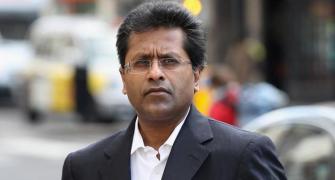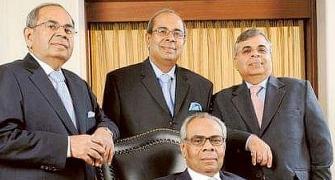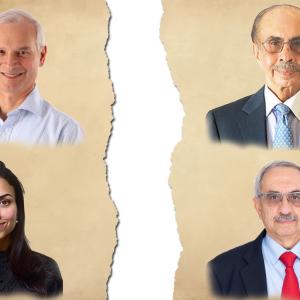When there are two wills produced before the court, which one will be executed?

It's the battle of two wills between Bharat Forge Chairman Baba Kalyani and his younger brother Gaurishankar Kalyani over their late mother Sulochana's will.
In a new twist in the ongoing legal dispute involving Baba, Gaurishankar, and the children of their sister Sugandha Hiremath regarding the Kalyani family assets, the Pune court has stepped in to hear the parties.
Baba has approached the Pune civil court, seeking to enforce a will of Sulochana dated January 27, 2012, while his brother Gaurishankar has disputed it with a different will dated December 17, 2022, which suggests a different way to distribute their mother's estate.
The Indian Succession Act, of 1925 (the Act) provides that a later will revokes an earlier will.
A will is to be executed by the executors named in the will after the death of the person making the will (called the testator).
"However, interpreting this provision, the Supreme Court of India seems to have taken contrary views in two separate judgments," said Shaishavi Kadakia, Partner, Cyril Amarchand Mangaldas.
In 2012, the Supreme Court ruled that the execution of a second valid will automatically makes a previous will redundant because the second will represents the last wish of the testator (a person who has made a will or given a legacy), and the latter will doesn't need to carry a specific provision cancelling the earlier will (refer to Mahesh Kumar (Dead) by LRs v. Vinod Kumar & Ors).
Conversely, in 2018, the Supreme Court held that a reference to the revocation of the earlier will is necessary for the latter will to revoke the earlier one (refer to HV Nirmala v. R Sharmila).
"A will is required to be probated before it is enforced. Probate (defined under Section 2(f) of the Act) is the certification of a will with the seal of approval by a court of competent jurisdiction and is a judgment in rem (binding all persons in the jurisdiction), as opposed to a judgment in personam (which binds only the parties to litigation)," Nishant Datta, advocate at the Delhi high court, said.
If a will is made in a place that falls within the original jurisdiction of the high court of Bombay, Calcutta, or Madras, or if it deals with immovable property situated in such a place, then the executor must make an application to seek probate of such a will from the jurisdictional court -- for instance, in Mumbai, this would be the Bombay high court.
"Probate is granted by the court to certify the genuineness of the will. Once probate is granted, the sanctity of the will is proven," Kadakia said.
Gaurishankar had told the court that Baba's attempt to probate the 2012 will was achieved through 'coercion and undue influence'.
He cited the 2022 affidavit, claiming that Sulochana had revoked all her previous wills.
Gaurishankar further accused Baba of trying to 'usurp' the properties intended for him.
A will may be challenged on various grounds, such as the testator not possessing mental capacity; in legal parlance, this is referred to as a lack of 'testamentary capacity'.
Such challenges are particularly likely if the testator is old or mentally disabled.
A will may also be challenged on the ground that the testator did not exercise 'free will' when preparing the will.
Challenges may also be made because the will was forged or prepared by fraud.
A will may also be challenged on the ground that it has been revoked or replaced by another later will.
A dispute over the will of hotelier late Prithvi Raj Singh Oberoi of the Oberoi Hotel Group also reached the Delhi high court when the court restrained the transfer of shares in EIH and EIH's holding companies Oberoi Hotels and Oberoi Properties.
The court ruled in favour of Oberoi's daughter, Anastasia, who had moved court claiming rights to shares in the companies as per the will of the late Oberoi.
Anastasia and her mother claimed her brother, sister, and cousin (defendants) were obstructing the execution of the will.
Prithvi Raj Singh Oberoi passed away on November 14, 2023.
The parties have each produced a will to support their case.
While Anastasia and her mother have based their claims on the October 25, 2021 will, the defendants have pinned their hopes on the will dated March 20, 1992.
"The court will hear the parties and examine the evidence, and accordingly declare whether the will is valid or is void and liable to be set aside," Kadakia said.
Feature Presentation: Aslam Hunani/Rediff.com










